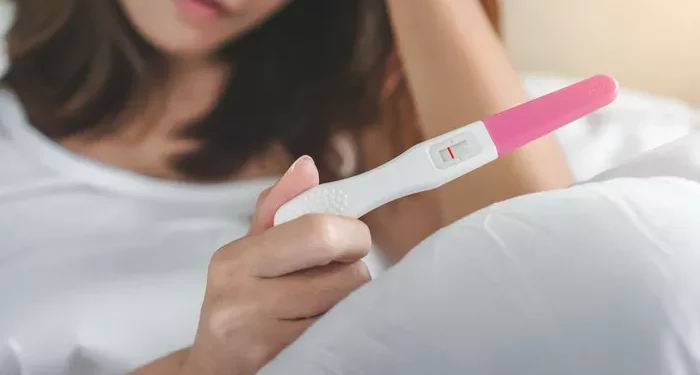In today’s world, many women are choosing to have children later in life. However, the likelihood of natural conception declines as women age. Understanding the chances of getting pregnant naturally at 45 is crucial for women making family planning decisions. This article explores the factors influencing fertility at this age, the realistic chances of conceiving, and possible steps to enhance fertility.
Understanding Female Fertility
Fertility is the natural capability to produce offspring. It is determined by various factors, including age, genetics, lifestyle, and overall health. For women, fertility peaks in their 20s and begins to decline in their 30s, with a more significant drop after 35.
The Role of Age in Fertility
Age is a critical factor in female fertility. As a woman ages, the quantity and quality of her eggs diminish. Women are born with a finite number of eggs, which decrease in number and viability over time. By the age of 45, a woman’s ovarian reserve (the number of eggs remaining in the ovaries) is considerably reduced.
Chances of Natural Conception at 45
The chances of natural conception at 45 are relatively low. Statistically, the monthly chance of getting pregnant for a woman in her mid-40s is around 1-2%. This figure is significantly lower than the 20-25% chance per cycle for women in their 20s and early 30s.
Factors Affecting Conception Rates
Several factors influence the likelihood of natural conception at 45, including:
Ovarian Reserve and Egg Quality: Both the number and quality of eggs decline with age. By 45, the eggs are more likely to have chromosomal abnormalities, which can affect fertilization and increase the risk of miscarriage.
Menstrual Cycle Regularity: Irregular cycles are more common in women over 40, reducing the chances of ovulation and, subsequently, conception.
Health Conditions: Conditions such as fibroids, endometriosis, and polycystic ovary syndrome (PCOS) can impair fertility. These conditions become more prevalent with age.
Partner’s Fertility: The male partner’s age and sperm quality also play a significant role. Male fertility declines with age, albeit more gradually.
Medical Perspectives on Pregnancy at 45
Risks and Complications
Pregnancy at 45 carries higher risks and complications for both the mother and the baby. Some of the potential risks include:
Miscarriage: The risk of miscarriage increases with age, with studies showing a rate of about 50% in women aged 45.
Chromosomal Abnormalities: The likelihood of chromosomal abnormalities, such as Down syndrome, is higher in pregnancies at this age.
Gestational Diabetes and Hypertension: Older pregnant women have a higher risk of developing gestational diabetes and hypertension, which can lead to complications like preeclampsia.
Premature Birth and Low Birth Weight: There is a greater risk of premature birth and babies being born with low birth weight.
Enhancing Fertility at 45
While natural conception at 45 is challenging, certain steps can be taken to enhance fertility:
Healthy Lifestyle: Maintaining a healthy weight, eating a balanced diet, and avoiding smoking and excessive alcohol can improve overall fertility.
Regular Exercise: Moderate exercise helps maintain a healthy weight and reduces stress, both of which can positively impact fertility.
Prenatal Vitamins: Taking prenatal vitamins, especially those containing folic acid, can prepare the body for pregnancy.
Medical Interventions: Consulting with a fertility specialist can provide options such as fertility treatments (e.g., IVF), which might be more viable than natural conception at this age.
See Also: How Difficult Is It to Get Pregnant Again After a Miscarriage?
Fertility Treatments for Women Over 45
In Vitro Fertilization (IVF)
IVF is a common fertility treatment where an egg is fertilized by sperm outside the body and then implanted in the uterus. While IVF success rates decline with age, it offers a higher chance of pregnancy compared to natural conception at 45. However, the success rate for women using their own eggs is still relatively low, around 5%.
Egg Donation
Egg donation significantly increases the chances of pregnancy for women over 45. In this process, eggs from a younger donor are fertilized with sperm and implanted in the recipient’s uterus. The success rates with donor eggs are much higher, often ranging from 50-60%.
Other Assisted Reproductive Technologies (ART)
Other ART methods, such as intrauterine insemination (IUI) and surrogacy, can also be considered, depending on individual circumstances and medical advice.
Psychological and Emotional Considerations
Emotional Challenges
Trying to conceive at 45 can be emotionally taxing. The stress of potential infertility, coupled with societal pressures, can impact mental health. It is crucial to seek support from partners, family, friends, or professional counselors.
Managing Expectations
Having realistic expectations is important. Understanding the lower likelihood of natural conception and being open to alternative family-building options, such as adoption or using donor eggs, can help manage disappointment.
Success Stories and Hope
Despite the challenges, many women have successfully conceived and given birth at 45 and older. These success stories often involve the use of assisted reproductive technologies. While individual experiences vary, they provide hope and encouragement for those facing similar situations.
Conclusion
Conceiving naturally at 45 is difficult due to the significant decline in fertility. However, with a healthy lifestyle, medical intervention, and support, it is not impossible. Women considering pregnancy at this age should consult with healthcare providers to understand their options and make informed decisions. Although the journey may be challenging, many pathways exist to achieving the dream of parenthood.
Related Links:



























